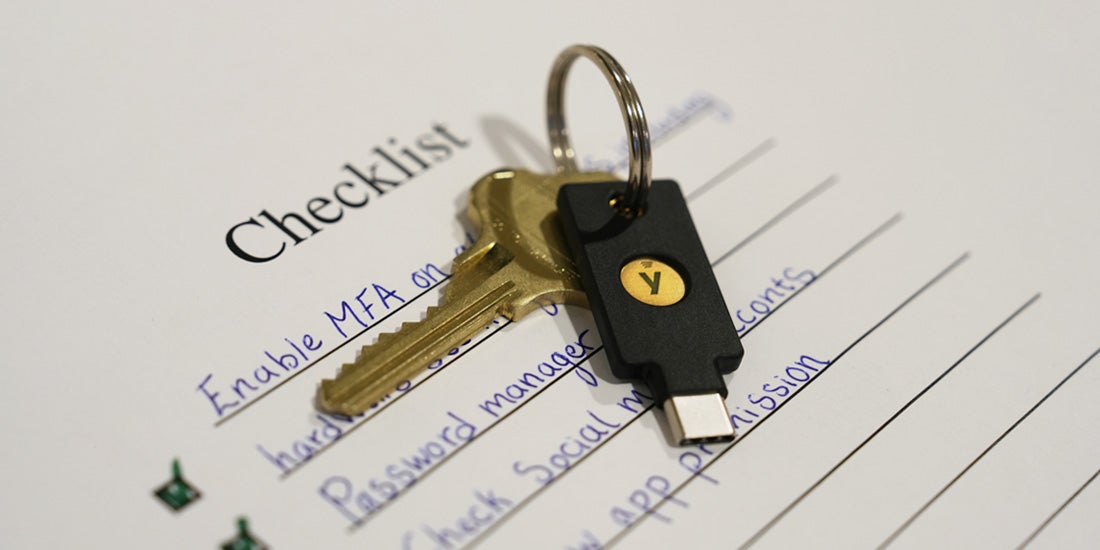With today being Identity Management Day, now is the perfect time to take stock of your online presence, update security settings, and ensure that your personal data remains protected from cyber threats like phishing. We’re also seeing increasing concerns of DeepSeek and other AI tools around data privacy making these kinds of attacks more successful than ever before.
Yubico is committed to helping you safeguard your digital identity, and that starts with your security habits. Just like decluttering your home, cleaning up your digital life can bring peace of mind and a stronger defense against increasingly sophisticated cyber threats. In addition to using strong phishing-resistant MFA like a YubiKey whenever possible, here are some essential steps from our security team to make sure you’re keeping your digital life secure with the latest cybersecurity best practices:
- Rotate passwords and use a password manager: A password manager not only helps generate strong, unique passwords for each of your accounts, but also ensures you never have to remember them all. Plus, you can secure your password manager with a YubiKey!
- Review your social media accounts: Take a moment to check your social media privacy settings and remove any third-party apps or services that no longer need access to your account. Limiting what personal information is publicly available can reduce the risk of phishing and identity theft.
- Audit your app permissions: Many apps request access to personal data, but over time, some permissions may no longer be necessary. Review which apps have access to sensitive data such as location, contacts, and camera and revoke permissions that are no longer needed. When possible, opt for one-time permissions instead of granting ongoing access.
- Enable device tracking: Losing a device can be stressful, but having the right tracking tools in place can make recovery easier. Ensure that features like Find My iPhone (Apple) or Find My Device (Google) are activated, so you can locate and remotely manage your device if it’s lost or stolen.
- Restrict lock screen notifications: Preventing sensitive information from appearing on your locked screen is an easy but effective way to enhance your online security. Disabling SMS codes from appearing on your lock screen can thwart unauthorized access attempts and protect your accounts from SIM-swap attacks.
By taking these steps, you’re not just cleaning up your digital footprint – you’re strengthening your personal security against cyber attacks like phishing. This Identity Management Day, commit to making security a priority and encourage others to do the same.
See how your cybersecurity habits stack up to these additional tips for enterprises and individuals in our cyber hygiene checklist here. And if you have recently purchased a YubiKey, we’ve created YubiKey resource guides to help you get started with your most loved (and used) applications and services.



